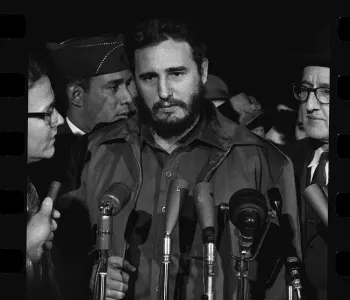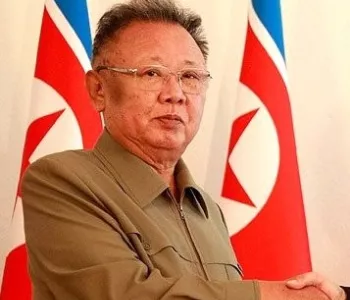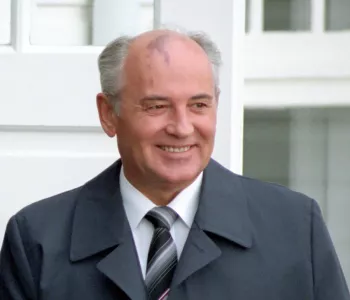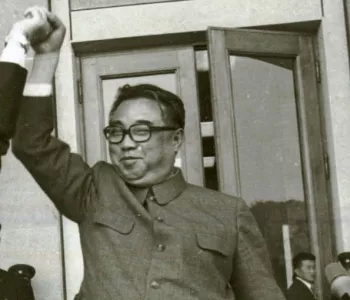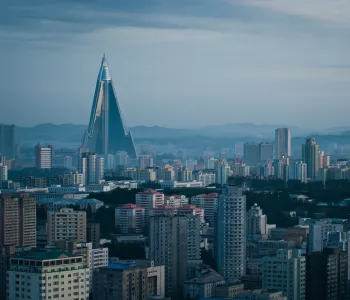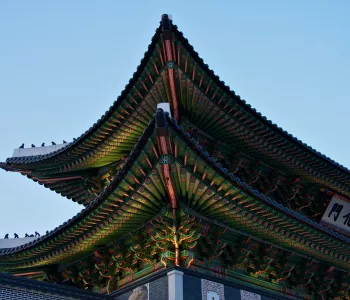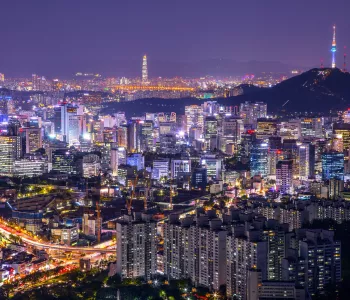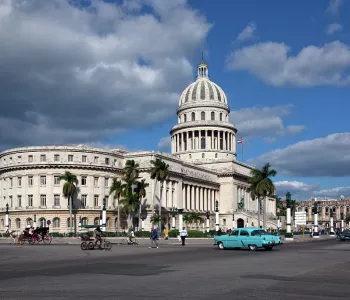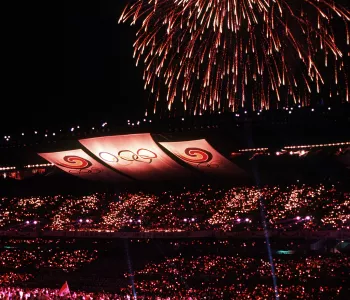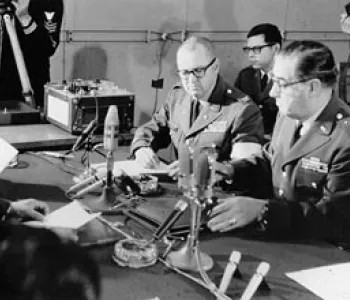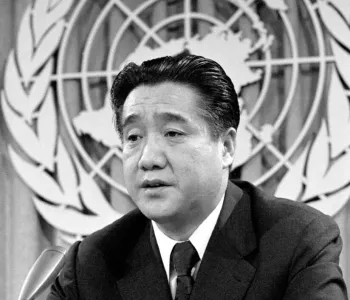d'Vinci

Hwang, Jang-yeop (Hwang Jang-yop) 1923- 2010
Once the secretary of the Central Committee of the KWP, Hwang became the highest-ranking defector from the DPRK since the Korean War.

HWANG JANG-YEOP (1923-2010). In February 1997, Hwang Jang-yeop, secretary of the Central Committee of the Korean Workers' Party (KWP) since 1985, became the highest-ranking defector from the Democratic People's Republic of Korea (DPRK) since the Korean War. Hwang was born in Pyongyang and graduated from Moscow State University in 1949. In 1954, he became chief professor at Kim Il Sung University and became head of the university in 1965. During this period, he was credited with being the main theorist of the KWP's juche (self-reliance) philosophy. Among his students was Kim Jong Il, Kim Il Sung's son and heir. Hwang pursued a parallel political career as a deputy chief of the Propaganda and Agitation Department of the Central Committee of the KWP from 1954 and as chairman (that is, speaker) of the national parliament, the Supreme People's Assembly, in 1972 and again in 1982. He was sufficiently important to appear as 25th on Kim Il Sung's funeral committee in 1994.
The defection, which took place in Beijing following a visit to Japan and which appears to have been arranged by the Republic of Korea (ROK) Agency for National Security Planning (now the National Intelligence Service), was at first seen as an indication of major problems within the DPRK regime. However, although the defection was denounced by the DPRK, this proved not to be the case, and while Hwang revealed some details about the DPRK political structure, it was soon clear that he had long been away from the center of political power and that personal as well as political reasons had played a part in his defection. Hwang was also unfortunate in his timing in that the change of government in the ROK that brought Kim Dae-jung to power in early 1998 led to a new approach to relations with the DPRK. Hwang complained that his views were not listened to and that he was prevented from traveling abroad. The return to a more conservative ROK government in 2008 made his views more acceptable, but by then his direct knowledge of the DPRK was well out of date. This did not restrain him, however, and he made regular pronouncements on the situation in the DPRK, usually in his capacity as president of the Committee for the Democratization of North Korea. He died in Seoul on 10 October 2010 of natural causes.
All rights reserved. No portion of this publication may be reproduced, stored in a retrieval system, or transmitted in any form by any means, electronic, mechanical, photocopying, recording or otherwise without the prior written permission of the publisher. (Historical Dictionary of the Democratic People's Republic of Korea, by James E. Hoare, published by RLPG Books, appears by permission of the author and publisher).
The defection, which took place in Beijing following a visit to Japan and which appears to have been arranged by the Republic of Korea (ROK) Agency for National Security Planning (now the National Intelligence Service), was at first seen as an indication of major problems within the DPRK regime. However, although the defection was denounced by the DPRK, this proved not to be the case, and while Hwang revealed some details about the DPRK political structure, it was soon clear that he had long been away from the center of political power and that personal as well as political reasons had played a part in his defection. Hwang was also unfortunate in his timing in that the change of government in the ROK that brought Kim Dae-jung to power in early 1998 led to a new approach to relations with the DPRK. Hwang complained that his views were not listened to and that he was prevented from traveling abroad. The return to a more conservative ROK government in 2008 made his views more acceptable, but by then his direct knowledge of the DPRK was well out of date. This did not restrain him, however, and he made regular pronouncements on the situation in the DPRK, usually in his capacity as president of the Committee for the Democratization of North Korea. He died in Seoul on 10 October 2010 of natural causes.
All rights reserved. No portion of this publication may be reproduced, stored in a retrieval system, or transmitted in any form by any means, electronic, mechanical, photocopying, recording or otherwise without the prior written permission of the publisher. (Historical Dictionary of the Democratic People's Republic of Korea, by James E. Hoare, published by RLPG Books, appears by permission of the author and publisher).
